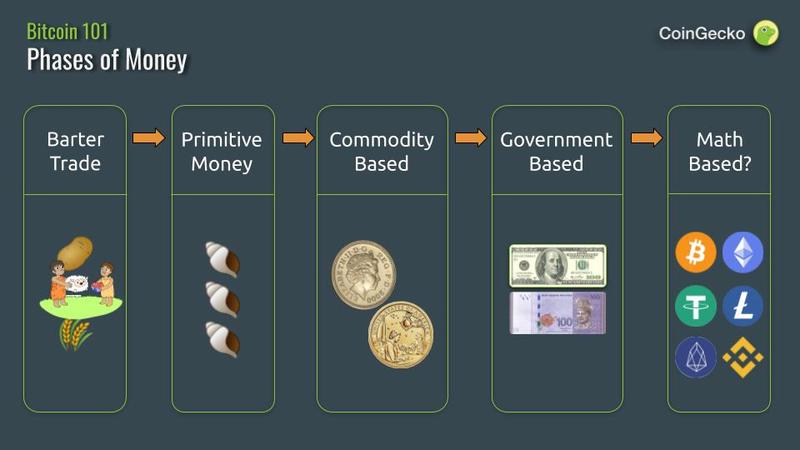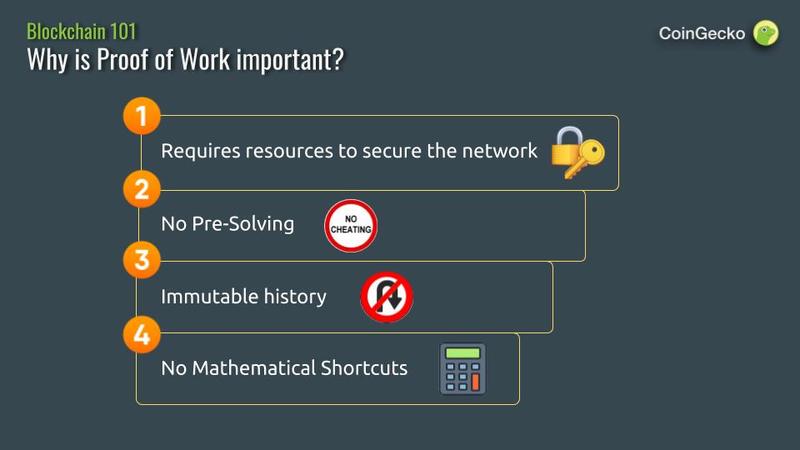- Bitcoin
- Bitcoin News
- Bitcoin Analysis & Opinion
- Bitcoin Price (BTC — USD) Cryptocurrency
- Bitcoin News
- TA: Bitcoin Signals Fresh Decline, Why Dips Could Be Limited In BTC
- Shanghai Man: Bitcoin interest drops in China amid crackdown on social media and miners
- IMF warns of risks after El Salvador adopts bitcoin
- Why The SEC Issued A Warning To Bitcoin Futures Investors
- IMF plans to meet with El Salvador’s president, potentially discussing move to adopt Bitcoin
- BTC Historical Prices
- Bitcoin Analysis
- Fiat Currencies
- Bitcoin Currency Converter More
- BTC Currency Snapshot
- What is Bitcoin?
- Bitcoin (BTC)
- New Portfolio
- Bitcoin Price and Market Stats
- Popular coins right now on CoinGecko
- Bitcoin Price & Market Data
- What is Bitcoin?
- Who created Bitcoin?
- When was Bitcoin launched?
- How does Bitcoin work?
- How to keep your Bitcoin safe?
- Bitcoin Halving
- Is Bitcoin a good investment?
- Can I short Bitcoin?
Bitcoin
For all future releases Just for the upcoming release Send me a reminder 1 trading day before
Position added successfully to:
Bitcoin News
This weekly roundup of news from Mainland China, Taiwan, and Hong Kong attempts to curate the industry’s most important.
Bitcoin Analysis & Opinion
Last November, we highlighted a cup and handle bullish pattern.
Mastercard Incorporated (NYSE:MA) MA has acquired Ekata, a.
Bitcoin (BTC/USD) sought additional technical direction early in.
We encourage you to use comments to engage with users, share your perspective and ask questions of authors and each other. However, in order to maintain the high level of discourse we’ve all come to value and expect, please keep the following criteria in mind:
- Enrich the conversation
- Stay focused and on track. Only post material that’s relevant to the topic being discussed.
- Be respectful. Even negative opinions can be framed positively and diplomatically.
- Use standard writing style. Include punctuation and upper and lower cases.
- NOTE : Spam and/or promotional messages and links within a comment will be removed
- Avoid profanity, slander or personal attacks directed at an author or another user.
- Don’t Monopolize the Conversation. We appreciate passion and conviction, but we also believe strongly in giving everyone a chance to air their thoughts. Therefore, in addition to civil interaction, we expect commenters to offer their opinions succinctly and thoughtfully, but not so repeatedly that others are annoyed or offended. If we receive complaints about individuals who take over a thread or forum, we reserve the right to ban them from the site, without recourse.
- Only English comments will be allowed.
Источник
Bitcoin Price (BTC — USD) Cryptocurrency
Bitcoin News
TA: Bitcoin Signals Fresh Decline, Why Dips Could Be Limited In BTC
Shanghai Man: Bitcoin interest drops in China amid crackdown on social media and miners
IMF warns of risks after El Salvador adopts bitcoin
Why The SEC Issued A Warning To Bitcoin Futures Investors
IMF plans to meet with El Salvador’s president, potentially discussing move to adopt Bitcoin
BTC Historical Prices
| Date | Open | Close | Daily High | Daily Low |
|---|
Bitcoin Analysis
Fiat Currencies
Bitcoin Currency Converter More
Add instrument to watchlist
BTC Currency Snapshot
What is Bitcoin?
What is Bitcoin?
Bitcoin keeps coming back in the headlines. With any Bitcoin price change making news and keeping investors guessing.
In countries that accept it, you can buy groceries and clothes just as you would with the local currency. Only bitcoin is entirely digital; no one is carrying actual bitcoins around in their pocket.
Bitcoin is divorced from governments and central banks. It’s organized through a network known as a blockchain, which is basically an online ledger that keeps a secure record of each transaction and bitcoin price all in one place. Every time anyone buys or sells bitcoin, the swap gets logged. Several hundred of these back-and-forths make up a block. (read more)
No one controls these blocks, because blockchains are decentralized across every computer that has a bitcoin wallet, which you only get if you buy bitcoins.
Why bother using it?
True to its origins as an open, decentralized currency, bitcoin is meant to be a quicker, cheaper, and more reliable form of payment than money tied to individual countries. In addition, it’s the only form of money users can theoretically «mine» themselves, if they (and their computers) have the ability.
But even for those who don’t discover using their own high-powered computers, anyone can buy and sell bitcoins at the bitcoin price they want, typically through online exchanges like Coinbase or LocalBitcoins.
A 2015 survey showed bitcoin users tend to be overwhelmingly white and male, but of varying incomes. The people with the most bitcoins are more likely to be using it for illegal purposes, the survey suggested.
Each bitcoin has a complicated ID, known as a hexadecimal code, that is many times more difficult to steal than someone’s credit-card information. And since there is a finite number to be accounted for, there is less of a chance bitcoin or fractions of a bitcoin will go missing.
But while fraudulent credit-card purchases are reversible, bitcoin transactions are not.
Bitcoin is unique in that there are a finite number of them: 21 million. Satoshi Nakamoto, bitcoin’s enigmatic founder, arrived at that number by assuming people would discover, or «mine,» a set number of blocks of transactions daily.
Every four years, the number of bitcoins released relative to the previous cycle gets cut in half, as does the reward to miners for discovering new blocks. (The reward right now is 12.5 bitcoins.) As a result, the number of bitcoins in circulation will approach 21 million, but never hit it.
This means bitcoin never experiences inflation. Unlike US dollars, whose buying power the Fed can dilute by printing more greenbacks, there simply won’t be more bitcoin available in the future. That has worried some skeptics, as it means a hack could be catastrophic in wiping out people’s bitcoin wallets, with less hope for reimbursement. Which could render bitcoin price irrelevant.
The future of bitcoin
Historically, the currency has been extremely volatile. But go by its recent boom — and a forecast by Snapchat’s first investor, Jeremy Liew, that it will hit a bitcoin price of $500,000 by 2030 — and nabbing even a fraction of a bitcoin starts to look a lot more enticing.
Bitcoin users predict 94% of all bitcoins will have been released by 2024. As the total number creeps toward the 21 million mark, many suspect the profits miners once made creating new blocks will become so low they’ll become negligible. With bitcoin’s price dropping significantly. But with more bitcoins in circulation, people also expect transaction fees to rise, possibly making up the difference.
One of the biggest moments for Bitcoin came in August 2017. When the digital currency officially forked and split in two: bitcoin cash and bitcoin.
Miners were able to seek out bitcoin cash beginning Tuesday August 1st 2017, and the cryptocurrency-focused news website CoinDesk said the first bitcoin cash was mined at about 2:20 p.m. ET.
Supporters of the newly formed bitcoin cash believe the currency will «breath new life into» the nearly 10-year-old bitcoin by addressing some of the issues facing bitcoin of late, such as slow transaction speeds.
Bitcoin power brokers have been squabbling over the rules that should guide the cryptocurrency’s blockchain network.
On one side are the so-called core developers. They are in favor of smaller bitcoin blocks, which they say are less vulnerable to hacking. On the other side are the miners, who want to increase the size of blocks to make the network faster and more scalable.
Until just before the decision, the solution known as Segwit2x, which would double the size of bitcoin blocks to 2 megabytes, seemed to have universal support.
Then bitcoin cash came along. The solution is a fork of the bitcoin system. The new software has all the history of the old platform; however, bitcoin cash blocks have a capacity 8 megabytes.
Bitcoin cash came out of left field, according to Charles Morris, a chief investment officer of NextBlock Global, an investment firm with digital assets.
«A group of miners who didn’t like SegWit2x are opting for this new software that will increase the size of blocks from the current 1 megabyte to 8,» Morris told Business Insider.
To be sure, only a minority of bitcoin miners and bitcoin exchanges have said they will support the new currency.
Investors who have their bitcoin on exchanges or wallets that support the new currency will soon see their holdings double, with one unit in bitcoin cash added for every bitcoin. But that doesn’t mean the value of investors’ holdings will double.
Because bitcoin cash initially drew its value from bitcoin’s market cap, it caused bitcoin’s value to drop by an amount proportional to its adoption on launch.
The future of bitcoin and bitcoin’s price remains uncertain. It could go to a $1,000,000 or it could go to $0. No one truly knows.
Источник
Bitcoin (BTC)
New Portfolio
Add Price Alert
price-chart#updateChart» data-action-type=»chart-mode» data-action-detail=»candlestick» data-price-chart-title=»Bitcoin Chart» data-price-chart-watermark=»true» data-target=»price-chart.chartModeButton»>
We’re indexing our data. Come back later!
Bitcoin Price and Market Stats
| BTC Price | $36,873 |
|---|---|
| Market Cap | $691,383,036,681 |
| Market Cap Dominance | 42.42% |
| Trading Volume | $42,888,965,069 |
| Volume / Market Cap | 0.0621 |
| 24h Low / 24h High | $35,855 / $38,849 |
| 7d Low / 7d High | $33,451 / $37,554 |
| Market Cap Rank | #1 |
| All-Time High | $64,805 -42.6% Apr 14, 2021 (about 2 months) |
| All-Time Low | $67.81 54729.8% Jul 06, 2013 (almost 8 years) |
Popular coins right now on CoinGecko
Links on this page may contain affiliate links. CoinGecko may be compensated when you sign up and trade on these affiliate platforms.
For more details, please refer to Clause 12.2 of our privacy policy and Clause 5.2 in our terms of use.
| # | Exchange | Pair | Price | Spread | +2% Depth | -2% Depth | 24h Volume | Volume % | Last Traded | Trust Score | ||||
|---|---|---|---|---|---|---|---|---|---|---|---|---|---|---|
| * | 0.11% | $3,772,145 | $1,591,641 | 36842.67 USDC | 0.04% | $322,159 | $317,949 | 37040.05 USDT | 0.01% | $23,906,076 | $8,843,849 | 108543.040 BTC | 9.36% | Recently |
| 2 | 37026 USD | 0.03% | $30,474,643 | $27,125,290 | 9709.731 BTC | 0.83% | Recently | |||||||
| 3 | 30376.49659787 EUR | 0.03% | $28,842,253 | $27,101,104 | 4048800.00000029 JPY | 0.02% | $27,776,934 | $27,148,896 | 26120 GBP | 0.04% | $27,297,824 | $27,089,625 | Bitcoin Price & Market DataBitcoin price today is $36,873 with a 24-hour trading volume of $42,888,965,069 . BTC price is up 0.3% in the last 24 hours. It has a circulating supply of 19 Million BTC coins and a max supply of 21 Million. If you are looking to buy or sell Bitcoin, Binance is currently the most active exchange. What is Bitcoin?Bitcoin is a cryptocurrency. It is a decentralized digital currency that is based on cryptography. As such, it can operate without the need of a central authority like a central bank or a company. It is unlike government-issued or fiat currencies such as US Dollars or Euro in which they are controlled by the country’s central bank. The decentralized nature allows it to operate on a peer-to-peer network whereby users are able to send funds to each other without going through intermediaries. For more information on Bitcoin, do read CoinGecko’s How to Bitcoin book. Who created Bitcoin?The creator is an unknown individual or group that goes by the name Satoshi Nakamoto with the idea of an electronic peer-to-peer cash system as it is written in a whitepaper. Until today, the true identity of Satoshi Nakamoto has not been verified though there has been speculation and rumor as to who Satoshi might be. When was Bitcoin launched?It was launched in January 2009 with the first genesis block mined on 9th January 2009. How does Bitcoin work?While the general public perceives Bitcoin as some kind of physical looking coin, it is actually far from that. Under the hood, it is actually a distributed accounting ledger that is stored in a form of a chain of blocks, hence the name blockchain. In a centralized system like the ones operated by a commercial bank, given a situation where Alice wants to transact with Bob, the bank is the only entity that holds the ledger that describes how much balance Alice and Bob has. As the bank maintains the ledger, they will do the verification as to whether Alice has enough funds to send to Bob. Finally when the transaction successfully takes place, the Bank will deduct Alice’s account and credit Bob’s account with the latest amount. Bitcoin conversely works in a decentralized manner. Since there is no central figure like a bank to verify the transactions and maintain the ledger, a copy of the ledger is distributed across Bitcoin nodes. A node is a piece of software that anybody can download and run to participate in the network. With that, everybody has a copy of how much balance Alice and Bob has, and there will be no dispute of fund balance. Now, if Alice were to transact with Bob using bitcoin. Alice will have to broadcast her transaction to the network that she intends to send $1 to Bob in equivalent amount of bitcoin. How would the system be able to determine that she has enough bitcoin to execute the transaction and also to ensure she does not double spend that same amount. Here is where mining takes place. A Bitcoin miner will use his or her computer rigs to validate Alice’s transaction to be added into the ledger. In order to stop a miner from adding any arbitrary transactions, they will need to solve a complex puzzle. Only if the miner is able to solve the puzzle (called the Proof of Work), which happens at random, then he or she is able to add the transactions into the ledger and the record is final. Since running these computer rigs cost money due to capital expenditure for buying the rigs and the cost of electricity, miners are rewarded with new supply of bitcoins that is part of its monetary system and some amount of fees paid by the person who wishes to transact (in this case it is Alice). This makes the Bitcoin ledger resilient against fraud in a trustless manner. While it is resilient, there are still some risks associated with the system such as the 51% attack where by miners control more than 51% of the total computation power and also there can be security risks outside of the control of the Bitcoin protocol. How to keep your Bitcoin safe?When transacting coins, you would typically be doing it on your personal computer. Since your personal computer is connected to the internet, it has the potential to be infected by malware or spywares which could compromise your funds. Hardware wallets such as Trezor and Ledger are strongly encouraged in mitigating that risk. These are external devices that look like USB sticks. A hardware wallet secures your private key that holds your Bitcoin into an external device outside of your personal computer. When you intend to transact, you would connect the hardware wallet into your personal computer, and all the key signing in order to transact would be done in the hardware itself outside of your computer. However, if you physically lose your hardware wallet without a key phrase backup, there is no other way of recovering your funds ever. As such when setting up your hardware wallet, always remember to keep a copy of the key phrase and put it somewhere safe from fire or flood. Bitcoin HalvingBitcoin Halving or sometimes also known as the Halvening, refers to the reduction of block reward to miners by half. This is part of its built-in monetary policy, in which after every approximately 4 years, the mining reward will be halved towards the limited capped supply of 21 million Bitcoin. Once 21 million of Bitcoin have been minted, there will no longer be new supply of it rewarded to miners, and miners are expected to earn revenue by way of transaction fees. In order to follow the real time of when the halving will take place, you can bookmark the CoinGecko’s bitcoin halving page. This is seen as a significant event for couple of reasons. Firstly, traders may speculate on the possible scarcity of Bitcoin making way to high volatility. Secondly, as miners’ rewards will be reduced, we may see some miners exiting the market as they could not sustain the lower profitability. This in turn may cause the hashing rate to reduce and mining pools may consolidate. Due to this, the bitcoin network may be a little unstable during the halving period. Is Bitcoin a good investment?We do not provide investment advice. The price of bitcoin started off as zero and made its way to the market price you see today. It appears that the market is placing value for the following reasons.
That being said, Bitcoin comes with risks. In order to determine for yourself if it is a good investment, it is important to understand the risk and only invest amount that you are comfortable losing. There is a probability of Bitcoin price going to zero. This can happen if the project fails, a critical software bug is found, or there are newer more innovative digital currencies that would take over its place. If you recall Bitcoin was worth nearly $20,000 in 16th December 2017. But in 17th December 2018, the price of Bitcoin was at its low of about $3,200. Bitcoin is a highly volatile asset class and requires a high risk appetite. As much as Bitcoin is a digital gold, it has only been around for about 10 years. In comparison to gold which has been a widely known store of value for over hundreds of years. Can I short Bitcoin?Yes, as bitcoin has grown to become more widely adopted, there are various derivative products being launched that allows you to short sell bitcoin. If you are an institutional investor, CME and Bakkt provide regulated bitcoin futures products which you can participate to long or short bitcoin. Alternatively, there are many other cryptocurrency derivative exchanges such as BitMEX, Binance Futures, FTX, Deribit, and more. These derivative exchanges are not formally regulated and can provide even up to 100x leverage. Derivative contracts are high risk products, you might want to understand what you are doing before participating in it. Источник |










